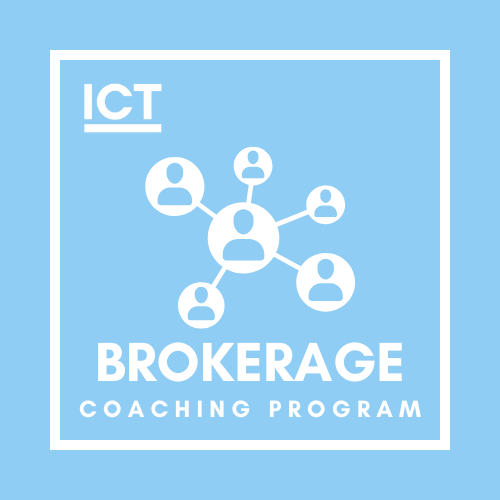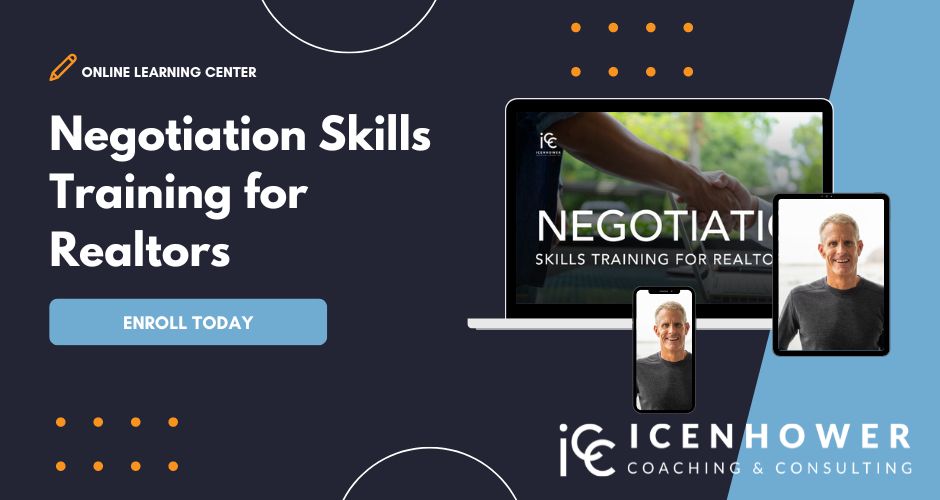Watch to learn how real estate brokers manage agents in a slow market when production has dropped due to seasonality or market conditions.
When the market slows down, even the most seasoned brokers face a familiar challenge — keeping their agents focused, motivated, and productive through the downturn. This is the time when emotions run high, business slows, and many agents start looking for the “next thing.”
In my 30 years of coaching and training top-producing agents and brokers, I’ve seen the same pattern repeat itself every fall. October marks what I call “recruiting season” — not because business is booming, but because it’s when agents start making lateral moves driven by emotion rather than strategy. Let’s break down what’s really happening and how brokers can manage their agents effectively during this cycle.
VIDEO: How Brokers Manage Agents in a Slow Market
Understanding the “Lateral Move” Syndrome
When the market gets tough, many agents don’t just slow down — they shift sideways. They switch brokerages, leave teams, or even consider changing careers entirely. On the surface, it looks like they’re seeking opportunity. But in truth, most of these moves are reactionary — fueled by stress, uncertainty, and a lack of financial planning.
Agents who don’t regularly track their profit and loss statements, understand seasonality, or save during peak months often hit a wall by late summer or early fall. Expenses feel overwhelming, deals dry up, and emotion takes over. Instead of sticking to the systems that will sustain them, they start looking for an escape hatch.
As brokers, our role is to recognize that pattern early — before it leads to a domino effect across the entire office.
The Emotional Cycle of Real Estate Agents
Let’s be honest — real estate is an emotional business. When agents stop seeing results, they start to internalize failure. By October, after months of hustle, exhaustion sets in. Listings have slowed, pendings are down, and the holidays are around the corner.
This emotional dip often looks like this:
Denial: “The market is slow, but things will pick up soon.”
Frustration: “Nothing’s working — maybe it’s my team or brokerage.”
Blame: “If my expenses were lower, I’d be fine.”
Desperation: “Maybe I should switch companies or get out altogether.”
And that’s where brokers must step in. The best brokers don’t let their people spiral in isolation. They preemptively strike — addressing the emotional reality before it festers.
Why October Kicks Off “Recruiting Season”
There’s a reason October 1st is often considered the start of recruiting season in real estate. As production drops and fatigue sets in, agents start imagining that the grass is greener somewhere else.
Unfortunately, most of these moves are lateral, not forward. Agents join new companies, new teams, or new projects, but they carry the same habits and mindsets with them. And within months, they’re facing the same challenges they tried to run from.
Brokers who understand this pattern use it to their advantage. They don’t panic — they prepare. They start recruiting proactively while reinforcing loyalty within their existing ranks.
-
Quick View
Brokerage / Corporate Coaching Program
$1,500 / monthWith the Brokerage / Corporate Real Estate Coaching Program, ICT will help firms set up the most effective and efficient systems for recruiting, agent onboarding, commission & fee structures, agent engagement & retention systems, recruiting, administrative work-flows, transaction management, staff hiring, agent onboarding, productivity training & accountability, financials & budgeting, marketing and much more!
How Brokers Can Prevent Lateral Moves
When managing agents in a slow market, prevention starts with awareness. Your team needs to understand the emotional and seasonal realities of the business. That’s why I recommend addressing it directly in your sales meetings this time of year.
Here’s what I’d say:
“You’re going to see people making moves right now — switching brokerages, leaving teams, or even exiting real estate altogether. Don’t let that distract you. Most of those moves are driven by fear and fatigue, not opportunity.”
By making your agents self-aware, you diffuse the emotional reaction before it takes root. You help them step back and view their situation with perspective rather than panic.
The Ripple Effect of Negativity
When one agent becomes dissatisfied, it rarely stops there. Negativity spreads quickly — especially in slower months. If a few team members start grumbling about leads, commissions, or expenses, that energy can infect the entire group.
As a broker or team leader, you must watch for warning signs:
Agents who stop showing up to meetings
Increased absenteeism or disengagement
Agents talking about “trying something new”
A sudden focus on blame instead of solutions
These are your red flags. That’s when you step in and have the tough conversations.
The Power of Hard Conversations
Most leaders avoid conflict. They want to keep everyone happy — but people-pleasing doesn’t help struggling agents. What truly earns respect is having an honest, caring conversation when an agent is slipping into the danger zone.
You might say:
“I can tell you’re frustrated. But before you make a change, let’s look at what’s really going on. Is this about the brokerage — or is it about the season?”
You’ll be surprised how many agents simply need perspective. They need someone to validate their feelings, remind them this slowdown is temporary, and show them how to prepare for the next surge of business.
When brokers lead with empathy and accountability, they don’t just retain agents — they strengthen loyalty for years to come.
Focus: The Differentiator Between Success and Burnout
Every year, people ask me why only a small percentage of real estate professionals ever reach sustained success. My answer is always the same: focus.
Those who stay focused through the highs and lows — who keep tracking numbers, saving, and working the plan — eventually build a business that no longer depends on constant grind.
But most can’t hold that focus when the dip hits. They change strategies, systems, or even careers. They give up on their goals before they’ve had time to materialize.
As a broker, your mission is to help your agents ride the dips — to remind them that the lows are just part of the journey.
Brokers who understand this pattern use it to their advantage. They don’t panic — they prepare. They start recruiting proactively while reinforcing loyalty within their existing ranks.
Brian Icenhower
Emotional Intelligence in Leadership
Effective leadership in a slow market isn’t about sales scripts or motivational quotes. It’s about emotional intelligence — the ability to read people, sense their state of mind, and act before it’s too late.
Here’s how emotionally intelligent brokers lead:
They notice changes in attitude or performance early.
They ask questions instead of making assumptions.
They listen actively, allowing agents to express frustrations.
They redirect emotions into productive actions like prospecting, training, or planning.
If you wait until someone quits to start the conversation, you’ve waited too long. By that point, they’ve already mentally checked out.
Taking a Preemptive Approach
The key to managing agents in a slow market is a proactive mindset. Don’t wait for the exodus — anticipate it.
Here are a few actionable ways to get ahead:
Hold a mid-fall sales meeting focused on the emotional realities of the season.
Implement one-on-one check-ins with each agent. Ask about mindset, finances, and goals.
Offer training or small wins to build momentum — such as 30-day lead generation challenges.
Celebrate effort, not just outcomes. Reinforce activity over results during slow months.
Encourage agents to double down on their database — holiday touches, pop-bys, and events keep them active and visible.
Why This Season Matters Most
October and November aren’t just “slow months” — they’re foundational months for next year.
Agents who stay engaged now will hit the ground running in January. Those who check out emotionally will start the new year from zero.
As a broker, you can’t afford to let your office go dark during Q4. The relationships you nurture and the structure you reinforce now will define your team’s production six months from today.
Final Thoughts: Leadership in the Dip
Managing agents in a slow market takes courage, empathy, and consistency. You can’t control the market, but you can control the message inside your brokerage.
Remind your team that the dip is temporary, but the habits they form during the dip are permanent. Be the leader who has the tough conversations, brings perspective, and stays focused on the long game.
Because when the market turns — and it always does — your agents will remember who stood by them when things were hardest.
Key Takeaways
Lateral moves in a slow market are emotional, not strategic.
Proactive brokers address mindset early through open communication.
Focus, consistency, and emotional intelligence separate survivors from quitters.
The best brokers lead with honesty and perspective — not people-pleasing.


















